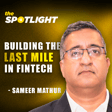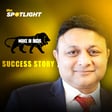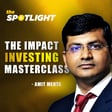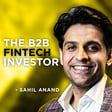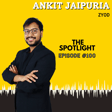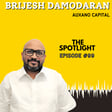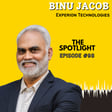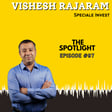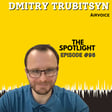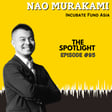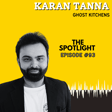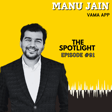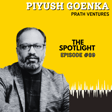Introduction to Tamasha Founders
00:00:13
Speaker
This would almost sound like a movie script. Two smart kids from IIT Bombay who love to play games build a gaming startup which then goes on to raise millions of dollars. But this is not a movie script yet.
Tamasha.live App: A New Social Media Platform
00:00:27
Speaker
Saurabh. Hi, I'm Siddharth and we are the performers of Tamasha.
00:00:27
Speaker
It is the real-life story of Siddharth Swankar and Saurabh Gupta, founders of Tamasha.life.
00:00:33
Speaker
Saurabh and Siddharth had a deep urge to do something entrepreneurial and they realised that the future of social media lies in gaming. The days of a passive scrolling of a feed with images and videos of strangers are numbered. The future is about meaningful connections and they decided to build a product that will allow for meaningful connections within a social media app. The Tamasha.live app allows creators to host interactive games that are simple and fun
00:01:01
Speaker
allowing strangers across the country to bond with each other while playing and having fun. In the process, Tamasha is not only empowering creators with tools to create interactive experiences, but also opening up channels for brands to engage more meaningfully with consumers.
Gaming's Evolution into a Social Network
00:01:18
Speaker
Here's Saurabh and Siddharth telling Akshay Dutt about their journey of building Tamasha.
00:01:25
Speaker
why we started and why we're building. So firstly, there is a bias among people around gaming. So let's say when we're talking about gaming, you instantly said that Twitch, you came to Twitch as a platform because gaming has always been a very niche for the last few years.
Gaming as Social Interaction vs. Facebook
00:01:39
Speaker
There were games like PUBG and FIFA or FIFA. Those were considered games and only certain set of people used to play games. And that's why these industries like Twitch and all, they were restricted to hardcore gamers. And that industry got pretty much matured. But how we see gaming is gaming
00:01:54
Speaker
Like for the last 3-4 years, how we are seeing gaming, how it is evolving is, it's not just we are restricted to certain age group or certain people or hardcore. It has actually become like a social network. We want form of social network, like it's become a way for people to interact or communicate. So in the last two years, we have seen that.
00:02:11
Speaker
It's like it's not just kids who are playing games. Like all of us are right now play games, but maybe it may be Candy Crush. It's a way for us to spend time to interact socially, right? So basically gaming is something that... So you're saying like gaming is replacing Facebook as a... It is going to replace Facebook for sure, because it is a much more immersive form of social interaction, right? So even all the social right from which you have seen, they have evolved a lot, like well, SMS stuff.
00:02:40
Speaker
Then WhatsApp and Facebook guys. So that's why we thought that all the people, all the micro influencers who are on TikTok or Instagram or things like that. So they can basically engage their audience or their community in much more interesting, fun and engaging
Monetization through Influencer-led Games
00:02:55
Speaker
way. Basically our competition won't be conditioned to do Facebook, creating a more evolved form of entertainment. Got it. Okay.
00:03:04
Speaker
And, but it's where like gaming, like Siddharth was saying that it is just for any micro influencer. I'm still not clear. Like when you both quit your jobs.
00:03:26
Speaker
So idea, obviously, if you look at any startup journey, there is a lot of iterations evolving, understanding the business, understanding the, that is obviously evolving, right? So initially, when we started, we had this, you have this user base, right? You used to be able to somehow monetize that. And real money game was also picking up. Real money game is very cool and money, similar to game 11 or any game. Very cool and money had you, all the builders get to take that money.
00:03:53
Speaker
So when you scale based game you basically get to win money based on your skills right out of the pool by that is created by a lot of audience that is participated in the game.
Origin of Tamasha and Community Building
00:04:04
Speaker
Obviously the house or the these companies are keeping up some keeping some cut there right.
00:04:09
Speaker
So we thought that we should be, because the influencers begin bringing the audience, they should be able to keep subcut out of that. So that is the recognition model that we started with. So when I say monetization, that was the theory that we started with. You influencers will bring their audience, make them play real money games and keep a cut off out of the pool price that was created. And that is how
00:04:31
Speaker
That is how they will be able to monetize because then you don't need a million followers or a large following. You can be as narrow as 10 or 20 people playing around you and still be able to monetize if they play a huge amount of games or large.
00:04:51
Speaker
So essentially, you wanted to create a way for allowing influence, essentially what Gromo was doing, something like that, where you will have collaborations with multiple real money gaming companies and influencers can bring their followers to those gaming companies' games. And if they play games and they spend money, then some commission is shared with the influencers.
00:05:16
Speaker
No, the idea was to build our own games and get the games on the back. So we have a platform where we have all these games and then we do one phase by making the users create those. Got it. So essentially you wanted to start a game studio.
00:05:37
Speaker
focused on real money gaming with the customer acquisition strategy as influencer-led where you will do a revenue share with influencers who are bringing in followers. Yeah, that was the initial idea.
00:05:56
Speaker
So there was an initial idea, but eventually the creators or the influencers were there. They don't just have a role of bringing users. They basically engaged the community as well. So we are building a lot of social tools. So let's say all the things which people do in real world. So let's say there are pretty parties or clubs. What these people do when the COVID was not there, people were going out more often. They used to meet together, or let's say play tambola together or then gave in the physical world.
00:06:19
Speaker
So similarly, the kind of experience that we are creating is like that only where people don't feel that they are not in the physical world, they can get all those experiences in the virtual space. So in Tamasha, people can create their clubs, people can interact in audio rooms, and they can play games in those audio rooms. And these creatives can monetize through it. So that's how those kind of interactive social or immersive layers we are building right now, so that how can we make interaction in those micro communities much more meaningful, interesting, interactive.
00:06:48
Speaker
So essentially, it's a social media, it's like a social network, but focused on gaming. Correct. It's a social network with much more interactive, immersive and playable experiences for people. Yeah. You can discover your own kind of people playing, people will signal an address around gaming, then you can find those communities. There are a lot of communities.
00:07:13
Speaker
which are playing industry games out. You must have seen that the house party of that became viral. So the experience is similar but it was a closed app where you only will be able to play and you have to get your own audience. This is the social network in a form that you can discover and join similar communities.
00:07:35
Speaker
I can see the broad vision as you're saying and I agree with you that Facebook kind of social networks are I think not really appealing for the millennial and the Gen Z's. I think for Gen Z's it needs to have more engagement in it than just sharing or looking at a wall or whatever. So you are building a game
00:07:57
Speaker
gaming focused or like a gaming led engagement driven social network. So what was the way in which you went about that zero to one journey? So you both were in jobs and what did you do? Did you quit your jobs? Did you raise funds and hire some engineers and build a game? How did you get your first 1000 users in?
Empowering Micro Influencers with Game Shows
00:08:23
Speaker
How did you get those first 1000 users in?
00:08:27
Speaker
You can basically go live and you can host a trivia in your own community. You can host a live host and host a trivia in their own community and can monetize through it. So the first format that we came up with was trivia.
00:08:53
Speaker
Right? And we interacted with a lot of these tier 2, tier 3 town influencers who are actually not monetizing. In most of the social platforms, there's a power law. So if you have a good community of 1000 people, you won't be monetizing. Right? But if you're 1 million, then you will actually start earning something. So we reached out to creators who are having very limited 5,000 following or something like that. They've got a good community, decent community, but they're just not monetized. That's an example of a creator.
00:09:19
Speaker
So basically, yeah, so there is a guy on a platform named Shivam is a guy who did not even have his account on Instagram, but he sent me a video on WhatsApp and that he got to know about the Masha and he said there is a new app coming Masha and he said that I want to be a host there. And he sent me a video in English. He was not that great in English. So I told him that shoot this video again and send me in your book screen.
00:09:42
Speaker
and that was amazing like that was super fun and we said we will help you to become a you know creator and so what he did was we started his show with name Bhaiya Ji Kain and he used to come every day and do a basically a Bhochpuri KVC in his own language and he started you know calling all his school friends and you know his village people and neighbors and told him that please join my show I would be doing a Bhochpuri style trivia right
00:10:09
Speaker
and people started coming and that was quite interesting and we realized that this is the power of you know technology or entertainment format if you can give a tool to people they know how to use it TikTok what TikTok did is give tool to people that who has all resources you know technology set them everything
00:10:27
Speaker
the quality of video that they can create, you can also create from your smartphone. That's what we did. We gave them a tool that you can host your own with your audience. And that's how our initial creator started coming up. So most of the creators were from small town. One of the other hosts is Parigee.
00:10:45
Speaker
So Paniji is a housewife and come from a background where her husband doesn't earn much and she has got a newborn baby. So she has got a decent time at her home and she is looking for some income. She has some decent income through which she can earn certain money and at that time it was COVID also. So she can't go out and work. So we made our host on Tamasha. So we started calling all her family people and all kind of people and also started posting and getting active on Instagram and social media.
00:11:15
Speaker
And we also helped her to bring in her. So she started earning 4-5,000 rupees a month to meet her basic expenses and also entertaining her community. She would also host like a quiz show.
00:11:28
Speaker
Yeah, she was also hosting a quiz show and eventually what we did is we created multiple formats out of a quiz. So we created a format called Chadia Ode. So we realized a lot of these tier two, tier three audience, they are not that educated. They are like more, a lot of them are good in quizzing, are as simple as what flies, what doesn't flies. And the answer has to be like, it is more about your reflex, that how quickly you answer it, how correctly. Yeah. So those kinds of format we started bringing up tier two, tier three communities.
00:11:56
Speaker
Okay, but like you said that housewife was running for 5000 a month. What was the monetization? Like people would pay to play?
00:12:10
Speaker
Yeah, so there were multiple things. So one was like today we were having like 10 rupees entry fee and people can win a hundred rupees or something like that. So small entry fee, small visits. So from there she was earning. Secondly, we were also rewarding her for multiple other things. So let's say if she has brought in users, so the referral fee doesn't go to the user that goes to her because she has brought in new users. So she was earning her referral fee.
00:12:34
Speaker
She was earning from creator referral. So let's say if you bring in a new creator, if you refer a new creator, you get some money out of it. So there were three, four ways for her, you know, on Tamasha to monetize. And that's how she was able to create and cover herself. Okay. Okay. So what was the product you created? So I understand what you said about TikTok made the YouTube level quality accessible to masses. Like anybody with a smartphone can create YouTube quality. So what was it that you created?
00:13:04
Speaker
make hosting a game accessible. We can't have product much of this, can we understand that? So basically about what we did is we, these people didn't have a platform where they can stream live video. You obviously had Instagram to stream live video, but you can't have a two-way engagement with the audience, right? They have only a live chat where they can just talk. Then you were to do something physically out of your screen, right? So while you're on this, now answer me in the chat.
00:13:31
Speaker
No, it is not scalable in the sense that you can't score people, you can't price money. So, what we created is a platform where you can have a live stream of audio or video, restarting the video, right? And then a layer of gaming over that. So, when the insert can register, you can add money using credit card or whatever, and then you can play the game, right? Now, what is playing game? So, in KVC, you used to see where Amitabh Bachchan used to say computer G,
00:14:00
Speaker
Show me the questions. That is the action that this host was actually going to do. Okay, now I will put a question on your screen and she had this button where she can post a question and everyone will see a question. Host needs to program the questions in advance.
00:14:16
Speaker
Before this, yeah, it was not their job. We used to create the question. We have this library of questions and we still program the questions in that contest. Create a contest or quiz, right? So the questions are all prepared. Okay, okay. These are the kind of questions that their audience enjoys. We used to date feedback from them.
00:14:34
Speaker
It was managed by Tabasha.
Founders' Journey: Challenges and Triumphs
00:14:40
Speaker
When the stream happened, did the host do everything herself or himself? Was there like a Tabasha person who would serve?
00:14:51
Speaker
Yeah, help set it up. As if pillar is just taking 2-3 buttons. You used to go there, film the time that you want to schedule a show and you can choose the category of question that you used. So we have to schedule volume or question bank of various categories, right? Studio or final math quiz or whatever. They can select the category and out of that category, we'll put in some questions up front, right?
00:15:16
Speaker
They didn't have the opportunity to see the questions because it was real when he gave it. So we used to keep it secure so that they can't leave the questions to the audience. So the questions didn't be visible to them as well as the audience at the same time. So they used to just schedule and that game will be visible on Tamasha. People used to come, pay and start playing. And yeah, that is how it works. So this is the product that we created. We made it as simple as just take a go and send your game live game schedule and you can now go ahead and amuse your audience.
00:15:44
Speaker
And anybody can start a stream or there was some wetting process. Yeah. So we had a wetting process. Basically just any random person could start doing it because obviously they might want to have some small skill to actually entertain on it.
00:16:00
Speaker
So what we used to do, we had a Google form on our app with the user. And we had amazing streaming. We had to do a call with them. And it was actually the one who was actually wetting initially. So he used to have some holes with the person like Sivam. Like Sivam said, they set the original video. He used to say, if I go to my place. So that is some sort of wetting process initially. Obviously we have evolved now.
00:16:25
Speaker
But yeah, we used to look at the power of engagement of those influencers. That was one major thing that we used to do. How can you entertain and engage the audience? How can you bring people to the platform? That's where you are actually doing, giving something back to the audience as well as to the platform.
00:16:42
Speaker
okay okay and so did you both quit your jobs and bootstrap this yeah how did you build product version one like so that obviously the journey sounds very straightforward and if the job start working get the money and I mean everybody has that that is not how it works so
00:17:00
Speaker
Yeah, always be happy to stay with us. We went through a lot. So initially we had already quit his job. I was in the blend of quitting my job. I quit my job. He was on board and we restarted really all the things. Initially, I think obviously now that team is very important part.
00:17:19
Speaker
of any startup idea to get the team back. But we had to have a team, we had to have more refined question of idea. We want to have funding, that was all running parallelly. One day we were thinking about getting investors or what should we pitch, we are learning about how to pitch, then how to build a startup. And other day we were thinking about what are we actually limiting, that we are talking to investors, that was all going on parallelly.
00:17:44
Speaker
I was the one who had some coding experience. I took a job of building something and I was involved in understanding the market influencers and getting one more time.
00:18:01
Speaker
Basically, we wanted to build a POC where we can show the investors. This is what we are building. So that's where we started. So we had another person as well in our team who was working. And he was the actual person who was supposed to build the tech. So he was the tech guy. I was the product guy. But he was like a full-time guy. So we had this experience. So we started with three people.
00:18:27
Speaker
We started building upon the idea and obviously, I wanted to do a seed funding as well. So VDEs, bars, e-mail are not off for the investors, right? Because we have this IID moment attack, every investor used to at least give us help us get a call, right? We used to easily get a call.
00:18:44
Speaker
because of the idea of that was very good. So we had a call with a lot of investors and every investor is on Google to see what we believe. Obviously, they were excited, they said, you know, we do it. So people were liking our idea, we want to, we just want to execute, right? So that's what we started doing. We started executing. Investor, getting invested is not very easy, even though you have no idea of what you have, right? You have to have a good idea and a good execution to actually convince people to give you money.
00:19:11
Speaker
We started building POC, but somehow there were some issues in the team and we were not actually able to deliver the product to the investor. And we said that we won't be able to undo the product.
00:19:26
Speaker
That was the bullet points rejection when we were almost there to get the funding, but because we did, we got a rejection and that's where things heated up right in the team, finding out how can we make it much better. And we ultimately split the team, we sort of made our own way to start this. And we had
00:19:49
Speaker
But you had the third co-founder, the CEO or the tech co-founder, he did that. There was a lot of damage that we had already gotten because of all this. So we did have a good name as the investor. So we wanted to see something but now we don't have anything. Now we have to also now tell them that we won't have a co-founder as well. That should go under.
00:20:12
Speaker
I think everything just got messed up. So, that's where basically we took up the job. So, I even though I had some idea of building things, but obviously I did never pull out something like that. We had around a week to actually show this is the way we were building it, gave us funding and they basically gave us one week of ultimatum that you said, you said so-called otherwise, you have the answer will be no permanently, right?
00:20:42
Speaker
That's where I started coding, sort of started helping in design and idea of your operating, my building, everything. And learning KRE, how to build it, learning React, JS, learning the Java, everything in that one way.
Building a Strong Team and Overcoming Challenges
00:21:00
Speaker
So, you two had cut off, thanks to that React build, build the idea, right? And we somehow were able to show our POC to the investor
00:21:12
Speaker
that this is what we are building. That was a very close call where it was already almost going to go zero without even starting. You were already going to fail without starting up. But yeah, that's what you see when we were live speaking. So I was hosting the show, the investor was playing, I was playing. And we made a date with this amazing production kind of show where I was leading the show.
00:21:37
Speaker
then he was catching up and we were all seeing the scores. So, Sarp will be able to do much more relevant in a better way. But he was chasing my school, we were taking Aapitna to rural and finally, at the last percentage, he was right. So, he was still on the show. It was amazing, you were all having fun there. Obviously, it was nice.
00:22:06
Speaker
How did you do that? Like, is it like off the shelf? So obviously there was these things, there was these startup we were providing all this, right? But I didn't know how to use that. So what I did, I used to know YouTube. YouTube also gets us streaming, right? So what we did is we just put the iframe there. So it was very important that you keep on executing things.
00:22:33
Speaker
okay okay okay okay so then what like once you got that funding then what did you go about doing i guess you would have hired a tech team to build like a proper app to run this yes the investment it takes again a lot of time to actually get you get yes and then it takes around two months to get the money meanwhile we are also defining the idea of building the product right and hiring the tech team no one will actually tell you but the most second
00:23:00
Speaker
very hard second hardest part of building a startup is actually building a team so startup idea is one thing that is okay but if you don't have a team you're going to fail big time yeah we are being tirelessly attracting people I have tried attracting my almost all the friends to the idea
00:23:18
Speaker
very hard to convince them because they are friends, they, it is a very different equation in terms of the equity and resolve or whatever. So it is very difficult for to convince friends, but because the friends are not coming, now we are trying to convince strangers to come on board.
00:23:35
Speaker
People have their reservations. They obviously think it is very difficult for people to take up plans and it is very difficult to hire like-minded people. Because in startup, you don't want to have people who are just motivated by money. You want to have people who will go an extra length and will have some ownership of what we are building. Some connection with the idea.
00:24:01
Speaker
So that is what we have been doing, building things, iterating a lot, understanding what the market is. So they understand that we got this, that video, even though it is a good idea, but it takes a lot of internet for this to do in your town. So we could have a 2G internet, but your game is taking up 500 MB of data at once. So they were not coming back because they were competing with us. We were using a lot of internet of that. So we switched to audio, right? So running from the market, building, iterating.
00:24:31
Speaker
Tell me about how you did the customer acquisition. Okay. Siddharth was taking care of building the app, the technology part of it, the backend and all that. I'm guessing your role was to build users, right? Get users on. So when the first 1000 users catch a life.
User Acquisition and Platform Development Shift
00:24:49
Speaker
So what we did was we started with a couple of shows initially, some users were coming from those creators and we were also using our network to bring in more users. So what we did, we started utilizing our Instagram and social media a lot. So what the first thing which I did was I
00:25:08
Speaker
floated a program of internship that there was a time when our money was not there, our funding investment money was not there. So we floated a, you know, an internship program with no stipend, because we literally had no money, right? But with a promise to make, to basically do something interesting and learn in this process. So did that and that time, like in this internship program, I found a very jam of interns, like who actually helped us in spreading the works in a lot of communities. So this way, like,
00:25:35
Speaker
So we all voted, I think more than a hundred colleges at that time, for his ambassadors at that time. And they were bringing like a lot of users, a lot of us. So in just six, seven days of this Instagram page grew from zero to more than 2,500 people that time, right? By just by spreading the word in a lot of these colleges. So that was one thing which we did. Secondly, I started reaching out to a lot of these micro-influencers who were not getting
00:26:01
Speaker
paid on multiple platforms. So when COVID happened, a lot of replicas of TikTok came up, right? And these replicas, they were actually, when they raised capital, they were actually giving these microinfluents or selfies and all, they onboarded them to their platform. But that was not sustainable, because those platforms were not making money. So they basically hired, like those platforms thought that we will pay them for a few months and eventually they stopped paying them. Eventually they were advertising.
00:26:30
Speaker
That was the business model, but eventually they were not monetizing. And a lot of these creators, like we talked to, they became jobless. So a lot of these creators, they basically left their job. So like some of the creators we talked to, they were waiting at a restaurant and they left the job to become a...
00:26:53
Speaker
And then eventually the Sally stopped coming, you know, like the contract got to work after three months, it was jobless. So we were reaching out to these creators and we were saying, telling them that you already have a community, you are not able to monetize that. What if you start hosting on Tamasha and you start telling, bringing those community people to Tamasha platform. So that's what we started doing. So we started, you know, focusing on these micron viewers having 5,000, 10,000, 20,000 following, they are not monetizable.
00:27:22
Speaker
and making them creators and bringing their community along with them. So that's how we got our Q. Okay, okay. I've heard of a lot of companies using this College of Baster program, but I just want to understand how do you implement this? Okay, you post an internship opening on, say, Interns, and some people apply.
00:27:50
Speaker
So we gave them that, so we made their tasks much more very gamified. So let's say these are five tasks which you have to do. Basically you have to put up a post to these kind of certain things. And accordingly, we used to gratify certain interns, interns of the intern of the day or whatever. And so all the tasks which were there, basically we had certain criteria to measure those, right? So let's say if you are bringing people on Instagram, you can share some screenshots of people who you have referred
00:28:19
Speaker
So they are setting credit and based on that you were gratified. So we were quantitatively measuring their performance and rewarding them based on that. So that's okay. Okay. Okay. Okay. Gameification again. Okay. Okay. Okay. Take it. Got it. And so tell me about the user growth. When did you formally launch the master.live as an app on the Play Store?
00:28:42
Speaker
So on Play Store, we are still not there and probably by like in next four, five days, we will be there on Play Store because since the app is real money, the real money games have to be downloaded, apps have to be downloaded from the website, similar to, but right now we are coming up with a version on Play Store as well where without real money as well, these graders can monetize. So that is something which is in the pipeline. But yeah, so we launched this app.
00:29:06
Speaker
last year around January and that was also closed beta only we were not promoting it and even so far we have like from January this month we have actually started doing some kind of marketing activities paid marketing for the entire year last year we were doing just two things
00:29:22
Speaker
Firstly, learning from our users that what they want, what kind of features they want, what kind of games they want, and then building the team is something which we are doing and collecting the feedback from the user and evolving the product. So the last entire year, we were scaling up, like we were building the product very organically. But interestingly, the product had a decent growth on an organic basis as well. So starting from April, so in April, like from January to April, our let's say monthly transaction increased to 10 lakh rupees a month.
00:29:50
Speaker
In May, it increased to 1 crore a month. And from now, it increased to around 5 crores a month. So that was the kind of transition. And that too, without spending money on any Google, Facebook, any kind of ads. How many users, like one crore a month, how many active users do you use? Like monthly active users, BAU, daily active users, whatever you try. So one crore, I remember, they were around 10,000 or something.
00:30:18
Speaker
which is a pretty big number, 10,000 because these are all paying users. There was no free. So most of the users were quality users. So there was some users who used to play in token, but those were any very, so we were experimenting certain things that what if we can give 50 tokens, people can play with tokens, but most of the quality of users were paying users at that point in time.
00:30:46
Speaker
If you play with token tour, you don't get to win, but if you play with real money, then you win. So that is something which we had at that time. And we also, since then what we did, we started building organic communities, right? When we switched from video to audio, we realized that there is an amazing increase in the engagement activity on the platform, which typically you can't see, will you do it, will you execute it?
00:31:09
Speaker
So one thing we realized that India is not yet ready for, you know, that ready for live video, because like a lot of these creators have problems. They don't have resources to go live every time. So when we switched from video to audio, we started seeing amazing engagement. Our creator was doing one game show a day. He was doing eight to 10 game shows a day, because now even if you are making chai, you can host a game and that's what that was happening. So that's how we went. So like initial three, four games we created on our own.
00:31:38
Speaker
And eventually we realized this model is also not scalable because building a game is itself a very time consuming task. There has to be a brain continuously working on improving the game on a daily basis.
00:31:54
Speaker
So we decided that what if we open this ecosystem for developers, right? So developers can build innovative games on our social layer and monetize it from Tamasha. That's what we did. So after that, we started inviting developers and right now there are a lot of partnerships that are aligned.
00:32:11
Speaker
with a lot of developers where they are looking to monetize their game with Tamasha ecosystem where creators can host a tournament or a contest in their community they can interact and they can play those games in their community so we have built a social layer and over there games created or developed by developers okay okay this is pretty interesting the essentially so now from being a
00:32:33
Speaker
gaming studio, you are becoming a platform, which is definitely a very big unlock. There's this something called Roblox, something like that, you know, which comes with CSS. They are also something like that, right? Anybody can come and create a game on it.
00:32:50
Speaker
correct. Yeah, that is also similar platform. But basically there it's like it's a platform where firstly is it targeted to mostly teenagers and college students who create certain formats, which people get that's like user generated games like that is their positioning. Okay, in your case, you still need
00:33:11
Speaker
So the same difference between roadblocks and us is that we are not providing a developer ecosystem for building the game. We are not giving you a 3D jet to build a game. We are giving you an engine to plug that game. You create your own game. Developers create their own game and they plug it. So if you can't create games on Amazon.
00:33:32
Speaker
Developers can plug in that aim of a Kowasha platform. So that is the difference. On Roblox, you can go and create a game with the engines, physics engines that they have given and all the elements that you have given, you create your own environment, things like that. But on the Kowasha, you can publish your game, right?
Tamasha's Evolution: Interactive Social Experiences
00:33:49
Speaker
It is just like bringing your own game, you publish and influencers will take it up and it will take it up and maybe it will go viral as well. So what are the product roadmap? Like what all feature?
00:33:59
Speaker
So in the world where we have this private communities where people will be able to keep them closed, right? And then play with their own games, invite only, yeah, and play different games that are in the pipeline. Similarly, the same games, but inside general, it's games. Okay, okay. Real money gaming, there is no way to launch it on Play Store. You need to do it as a separate app outside of Play Store only, like you can't
00:34:28
Speaker
monetize real money gaming on desktop. Unfortunately, Google doesn't allow that. Google has their own policies, even though it is allowed in India by the government, but Google has their own government, their own thing. App Store allows it, so Apple allows it. So a lot of real money games have Apple. Apple allows, okay.
00:34:52
Speaker
Have you launched on App Store? What is the government doing for real money gaming, except for Karnataka or any other in any other state? Do you need to register for this? Like you have SEBI or all these bodies which regulate different industries.
00:35:10
Speaker
So we don't have to have a registration, we just need to follow the rules by the government. Honestly, the industry is pretty young for now. So all the regulations and everything are still coming up that already are looking into the matter and they are building the right form of regulations for this industry. But till then, suppose the authorities say that this is not allowed here, we follow that. So that is how it goes.
00:35:32
Speaker
I think the key thing in real money gaming is I believe there is some line between gambling versus game of skill and you can do game of skill but you can't do gambling. Correct. That's true. So basically every game that we bring in on our platform, we get a legal opinion done.
00:35:48
Speaker
So we have hired some of the top law firms who basically give a legal opinion that is this game integrated on Tamasha ecosystem or not. So that is something we have to be selective and that's one of the reasons that we are bringing up with this play store offering because we know that the kind of amazing social ecosystem that we have built
00:36:07
Speaker
should not be restricted to limited people, right? Should not be restricted to people who want to play real games, real money games. It should be, you know, given to everyone, right? Because this kind of social layer along with gaming is something which doesn't exist anywhere and this kind of experience has to be given to the people, right? People have all kind of communities, like when every society will have some fun communities, there are kitty party clubs, all kind of clubs are there.
00:36:31
Speaker
Now they are deprived of their kind of engagement or experience that they used to have in the physical world. So we want to give them those kind of experiences, make them find friends who are like-minded, who want to play those kind of games with them. So that's one of the reasons we are bringing Play Store app. On Play Store app, there is a monetization layer of virtual gifting. So basically, if the community is really engaging, you are liking the host, you can do some virtual gifting on the platform. And other than that,
00:37:00
Speaker
more interesting models that we are coming up with around rotation, which will reveal soon. The other monetization strategies that you are like, which are under wraps, but you can give us some hints about them.
00:37:14
Speaker
So there are certain interesting formats of monetization, private tables. So private table is a format where you can play directly with a particular host on one-to-one table. So let's say you must have seen that there are a lot of products around interaction with celebrities that have come up, right, where you can talk on the whole video with the celebrity.
00:37:36
Speaker
But here it's much more interactive and fun format where these influencers can play Rudo, let's say with a particular influencer. So that is on format. So this private table man, it will be like you have to pay to play this like, like that. But that thing, but you know, the value of a private table comes from playing with an influencer and you don't expect anything, you know, in return.
00:37:59
Speaker
There's no winning there. That's more like a subscription rather than real money giving. Correct. So basically we are bringing a lot of virtual things on the platform so that the value of the money which you're putting, you get at the same time. And that's what, you know, those kinds of tools we are building where the value can be given through social gratification rather than real money. So you're not planning to monetize through ads on this?
00:38:24
Speaker
not for now like currently we want to focus more on the experience I think eventually brands can use this as a tool or you know to engage the community so let's say there is a e-commerce app and they want to engage do interesting contest through a game where whoever wins they get a voucher and the other people get so it can be a good one because when you put up an ad on Facebook or a poster on Facebook it is not a very engaging medium right to attract users but let's say if we do a
00:38:53
Speaker
gamified if you invite the users or a contest or a game, then it's a voluntary thing that they can do some rewards or free of cost, they can give some vouchers of their products and things like that. And one more interesting cycle of say, Baba Earth can, Baba Earth has a D2C brand, they can do a game for housewives, for example, where they can win some products of Baba Earth.
00:39:17
Speaker
So that is something that great interesting model, but that is something which you would like to go with eventually once we scale the platform in the Play Store app. These kind of things we can do on Play Store as well. Okay, got it. Interesting. So like a gamified social network. Amazing. So I think in the long run, it is this gamified social network rather than real-life gaming.
00:39:41
Speaker
really going to be the big driver of value for you as a business. Real money is going to be a very small part of a medium for people to generate some revenue for these creators. But there would be like six to seven things from which these creators can monetize. What are the other ways like private table virtual gifting?
00:39:58
Speaker
Yeah, so like some of them I can you know directly which are operation like which are working right now. I can tell like one is which works right now. One is real money which is already. So then third one is these as they grow the as they help us in growing the community. So rather than giving our ad spend to Facebook or Google we give that ad spend to create us referrals, affiliates right affiliate is one. So four mediums are there right now then private tables would be there.
00:40:25
Speaker
and then a few more interesting models that we are coming which will reveal soon.




